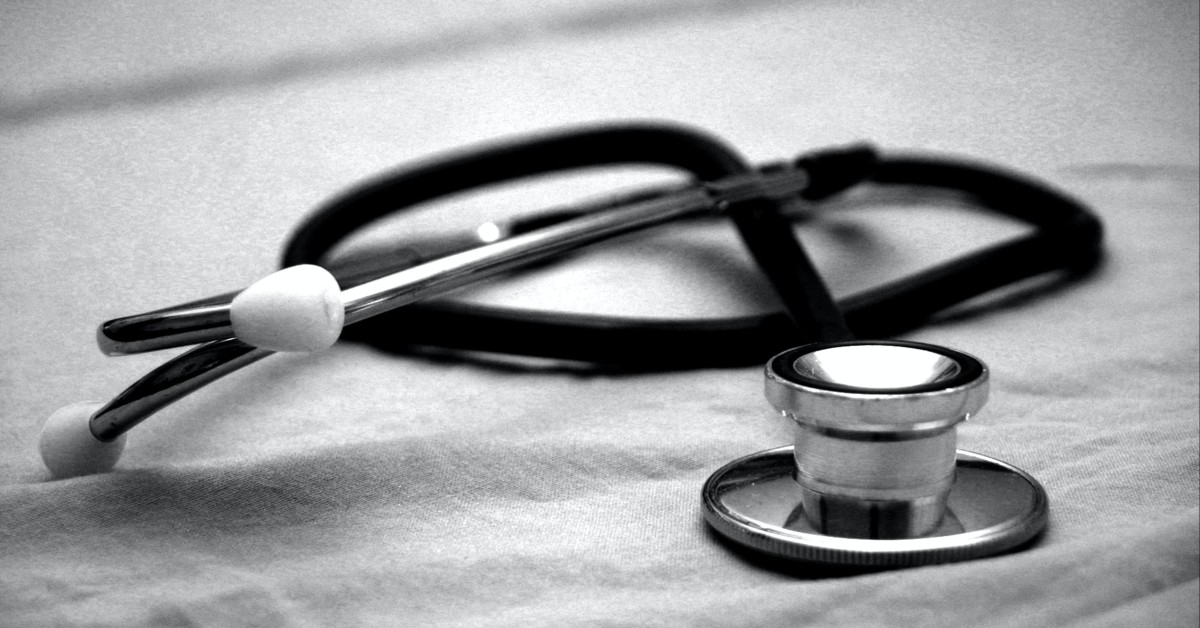
The 7 Best Master's Degrees in Healthcare
The healthcare profession offers many career options, from health services [...]

Health informatics is sometimes described as the intersection of medical records keeping and Big Data, and that’s an apt description. This interdisciplinary field leverages software, AI, databases, financial systems, and other technologies to optimize and analyze health records. Health informatics looks at the technical side of almost everything involved in patient care and medical practice management, from resource usage to data acquisition and storage to billing systems and intranets, to find ways to improve outcomes and efficiency in healthcare settings.
Health informatics professionals work in all kinds of healthcare systems. Their work can involve programming, systems integration, database design, and systems optimization. They’re employed by medical practices, healthcare networks, insurance companies, research labs, and public health organizations. Their skills and knowledge can help providers and insurers improve patient outcomes, make care more efficient, lower the cost of care, and reduce medical errors.
Health informatics is a complex discipline. Working in this field usually means earning a degree in health informatics—a discipline that’s sometimes referred to as healthcare informatics, medical informatics, clinical informatics, biomedical informatics, or health systems information management. It’s possible to work in the field with a bachelor’s degree in health informatics. Still, you won’t be able to step into many higher-level, higher-paid roles in informatics without a master’s in health informatics.
In this article, we answer the question what is health informatics? as well as the following:
There are many similarities between health informatics and medical records keeping (or health information management), and the responsibilities of professionals in each discipline can overlap significantly. In general, however, health information management professionals are responsible for collecting, organizing, analyzing, and securing digital and hard copy medical records. According to Steve Wretling, chief technology and innovation officer for the Health Care Information and Management Systems Society, it’s up to health information professionals to make sure “the right information is available when and where it’s needed, while at the same time making sure it’s the highest quality data, it’s confidential and it’s secure.”
Health informatics, on the other hand, encompasses all the ways data can be used to improve the delivery of healthcare services and patient outcomes. Medical practices, hospitals, healthcare networks, insurance companies, and other health-focused entities collect huge amounts of information with which health informatics professionals work. Think of them as the database administrators, data analysts, and data scientists of the medical world. Their job, according to the American Medical Informatics Association (AMIA), is to apply the “principles of computer and information science to the advancement of life sciences research, health professions education, public health and patient care.”
The critical difference between these disciplines is that health information management professionals are focused on the management of the vast quantities of data collected by the healthcare industry. In contrast, health informatics professionals are focused on leveraging that data to improve medicine.
Given how varied the information collected in healthcare settings can be, it should come as no surprise that there are many different kinds of jobs in health informatics. Some of the most common roles in healthcare informatics include:
There are opportunities for health informatics professionals all the way to the c-suite. In some cases, health informatics specialists become Chief Information Officers for healthcare facilities and networks. Some facilities also have a Chief Clinical Informatics Officer or Chief Medical Information Officer on the executive team.
Salaries in informatics can vary quite a bit, and how much you can earn depends on your role, the highest level of education you complete, your company, and your geographical location. The average salary for health informatics bachelor’s degree holders is about $63,000. Master’s degree holders are more likely to earn closer to $72,000.
According to the BLS, the median pay for medical records and health information technicians is $40,350 per year, but a health informatics consultant can earn more than $100,000—and there are plenty of health informatics jobs with salaries that fall squarely between those figures. Joining the ranks of the highest-earning healthcare informatics professionals almost certainly means going back to school for a master’s degree, because nearly all the highest-paying jobs in health informatics have titles like director, vice president, coordinator, or chief.
A handful of colleges and universities have Bachelor of Science in Health Informatics programs. However, it’s much more common for students to earn health information management degrees or health information technology degrees. All of these degree pathways are interdisciplinary and cover topics related to business management, information technology, information systems management, health records management, medical coding, ethics, and healthcare policy.
Programs at the bachelor’s degree level are designed to prepare students to work in healthcare administration and management. Some delve into data analysis and database management and require students to take programming classes. Others are more focused on the business side of health information and medical billing.
You’ll find many more health informatics programs to choose from at the master’s degree level, where programs tend to treat health informatics as the medical arm of big data. Students enter Master of Science in Health Informatics programs after graduating with undergraduate degrees in disciplines as diverse as computer science, medical administration, engineering, and data analytics.
The curricula in these programs typically include courses like:
In some health informatics master’s degree programs, students can choose a specialization track. Health informatics concentrations vary by program. These are examples of actual specialization tracks available to Master of Science in Health Informatics students:
In addition to coursework, students in most health informatics master’s programs are required to complete some kind of hands-on or experiential learning project. This can take many forms, including a capstone research project, a thesis, a clinical internship, or a practicum experience.
There’s no one standout school for medical informatics, but there are highly-respected Master of Science in Health Informatics programs at:
A number of colleges and universities have replicated their on-campus health informatics degree programs online. These programs for distance learners appeal to students who aren’t located near any schools that offer health informatics as a major option at the bachelor’s degree or master’s degree level. They also serve students who need more flexibility. Many online health informatics degree programs let students complete coursework on their own schedules, so they can continue to meet professional and personal obligations.
Some of the best online Master of Science in Health Informatics programs can be found at well-regarded colleges and universities like:
This field is growing, and demand for health informatics professionals is expected to grow as the volume of data generated by the healthcare sector and the complexity of that data increases. The amount of information generated in medicine is already staggering, and the rate at which it’s being created is increasing faster in healthcare than in other sectors. Practitioners, policymakers, insurance companies, and pharmaceutical manufacturers all want to make the most of this windfall of data, which means jobs in health informatics are plentiful. More importantly, studying health informatics will give you a diverse knowledge base that can lead to careers in IT, cyber security, data analytics, and patient privacy assurance.
Job security? This discipline has it. You’ll have a broad range of skills in a field in which there are still relatively few qualified professionals. You’ll have the knowledge and skills to work in many areas of medical information management and analysis. A career in health informatics can mean working to:
After racking up a few years of experience working with health information systems and Big Data, you could branch out into consulting and help medical facilities or hospital networks use the data they collect more effectively.
In other words, specializing in health informatics means graduating into a world of opportunity.
Questions or feedback? Email editor@noodle.com

The healthcare profession offers many career options, from health services [...]

Some of these courses introduce unfamiliar subjects. Some teach complex [...]

Looking for an inexpensive MHA? We've compiled a guide to [...]
Categorized as: Health Informatics & Sciences, Nursing & Healthcare